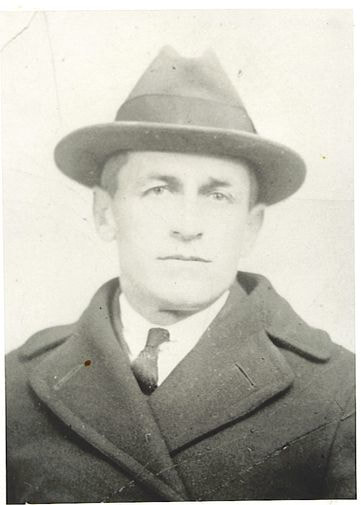|
“Grandfathering” is a much-cherished legal concept, and a good one at that. The notion is that an individual’s longstanding right or privilege may be allowed to continue notwithstanding new rules which apply to everyone else. Thus if a new by-law requires all new houses to be built of brick, it will likely grandfather all the existing wooden houses.
But the origins of the expression were much more sinister and had to do with voter suppression. After the American Civil War and the subsequent failure of Reconstruction, many of the former Confederate states introduced voter-suppression laws in the guise of voter qualification. Every voter for local, state or federal elections was required to register and demonstrate that he (yes, “he”) was qualified. This typically took the form of extremely difficult mathematical or linguistic tests that you and I would likely fail, including accurately guessing the number of marbles in a large jar. Fortunately for most white males, except possibly for “white trash”, there was an exemption if your grandfather had voted in such elections. Virtually no black could hope to be “grandfathered”. Tsk, tsk. Voter repression continues to exist in some states, particularly those tinged the same colour as Rudolph’s nose. One of the most clever devices is the “exact match” law which typically requires you to show up for voter registration with several pieces of official ID which exactly match your name on the census lists. Now, for many of us, that would be no big deal. If your name is Susan Mary Black, and you never got stuck with a pervasive nickname like Bunny, you’re likely in luck. But for poor souls like myself, not so much. Registered at birth as John Norman Bowley, my paternal grandfather Normand (pictured above) promptly decided I was his namesake and called me Normie. It stuck. Middle name problem. With a little bit of bureaucratic bungling over the years, I have licenses and certificates and credit cards and whatevers featuring J-Norman, Norman J, Norman, Normand, and one or two others. Some of my francophone friends tease me as Jean-Normand. At the hospital I am John. For international and air travel I’ve managed to get enough of these papers to match that I can get on an airplane, but it was, believe me, pretty arduous to get everything all lined up. And I have three university degrees, several professional designations and I know my way around the system. I can only imagine what it would be like to come from a single-parent household, birth registration in the name of some long-forgotten father, school certificates in the name of either my birth mother or the aunt who raised me, a military discharge certificate issued by some official who didn't like me or the funny way my name was spelled, and fearful and skeptical of a system that always gave me the short end, anyway. You get the picture. It would sure be a relief to be grandfathered!
0 Comments
With all eyes on the US midterms only a few days hence, observers around the world are beginning to understand that Donald Trump was quite right to speak of “rigged” elections, although not exactly as he meant.
Notwithstanding the belief of many Americans, their country is not the world’s only democracy, nor its oldest, largest or even best example. It is, however, the most influential functioning democracy and until recently something of a beacon. And it has contributed disproportionately to our political lexicon. Even from its beginnings, American democracy has never been unalloyed. Anti-democratic tendencies have waxed and waned since the days of Jefferson and Hamilton. The Electoral College, for example, was calculated to keep the ultimate selection of a president out of the hands of the great unwashed. But perhaps the most cynical perversions of democracy have to do with the manipulation of the voting process. While the suppression of voting groups by qualification tests is pernicious enough, perhaps the most insidious abuse is gerrymandering. To understand gerrymandering, consider a large square containing twelve dots which you have been tasked to divide into four voting districts. Now, of course, if you truly want to practice fair representation, you will divide the square such that there are three dots in each portion, but if you want your party to win the next election, and many more after that, you will identify the three most faithful dots and give each of them its own division, leaving the other nine to share the remainder. You will thus be virtually guaranteed a majority win every time. (It’s slightly more complex than that, but you get the idea.) Shenanigans of this sort long predate American democracy, going back at least to the rotten boroughs of Britain, which were finally abolished by the Reform Act of 1832. The most famous of these, Sarum Hill in Wiltshire (1295-1832), even after it ultimately became uninhabited, still qualified to send two members to Parliament, including the Prime Minister William Pitt the Elder. It was Massachusetts’ Governor Elbridge Gerry who gave his name to the American practice. In 1812 he signed a bill which re-drew the electoral map of the state to give near-perpetual electoral success to his Democratic-Republican party. Before long, some wag noticed that the map of one grotesquely distorted district rather resembled a salamander, and coined the term Gerry-mander, which expression has become part of our political lexicon. Gerrymandering remains alive and well in the United States because, unlike in most other democracies, the power to draw electoral boundaries remains with elected officials. To nobody's surprise, politicians continue to draw district boundaries to their own advantage. They are human, after all.lick here to edit. Just recently, my dear and ever-patient wife sent me an e-mail asking my opinion about a Christmas gift for one of our grandchildren.
Like many of us, I use Gmail. As I was opening and reading her question, Google had already proposed three responses: “Yeah, that’s a good idea.”, “I think that's a great idea!”, and “I don't think so.” All I needed to do was click on one of them. While we’ve come a long way from telemarketers' predictive dialing and WordPerfect's primitive Spellcheck, we've also learned (often the hard way) that blind reliance on computer-proposed answers can get us in trouble. We’re not quite at the point where we can trust computers to do all of our thinking for us. Without doubt, Artificial Intelligence apps such as Grammarly are wonderful for screening out goofy typos and spelling errors, but they can't yet detect the sense of the thing. For example, a few Briefings back I deliberately wrote, “Ore wood eye?” Grammarly gave me a pass on that syntactical nonsense. The next week I used the indicative instead of the subjunctive, and not a murmur from Grammarly. But a human reader caught me! Oddly enough, we are much less concerned about letting computers speak for us than letting them drive our cars for us. While most of the evidence is that self-driving cars are already far safer than human-driven cars, most of us approach the technology with trepidation. Self-driving cars are just about physics-- distance, speed, road surfaces, gaps-- all measurable to fifty decimal places and utterly predictable, and also not subject to fatigue, distraction, alcohol or medications. On the scale of things, easy stuff. But communication is far more complex than driving a car. It's not just words-- it's about subtly nuanced interchanges between minds, hearts and souls. The day may come that Artificial Intelligence knows about your mood, your level of emotional intimacy with the other person and your vocabularic style, and it may learn to copy the tell-tale tremble in your voice, the furrow in your brow, and the inquiring tilt of your head. But until it does, you're still in charge of your essential human interactions. Until Artificial Intelligence is smarter than you, you're still responsible for what you say. If you're prepared to hit "send" without reading and thinking, be prepared for the consequences. |
AuthorNorman Bowley teaches the Alignment Doctrine and the Client Code-- secrets to building the professional practice you and your clients deserve. Archives
September 2020
Categories |
-
Home
- Video >
-
Communication
>
- Elements >
-
Modules
>
-
Modules A-M
>
- Avoiding amateurism
- Change: Understanding It, Facing It, Profiting From It
- Communication for Long Term Relationship
- Communications Horror Stories
- Communications that blow up in your face
- Communicating toward success
- Earning the Right to Be Heard
- Gerunds, Mesolects and Other Arcane Terms of Art
- Having a Toad Day
- Healthy Fear
- Hippos and Raccoons-- Deadly Underestimation
- How I Moved From Doing What I Liked to Doing What I Loved
- How to Be on the Same Wavelength as Your Audience
- How to Pick Up a Porcupine-- Dealing With Difficult People
- Key of Trust
- Manipulation
- Mastering the Technologies
- Mining the Subconscious
-
Modules N-Z
>
- Quick and Dirty-- the 80/20 Rule
- Sabotaging Your Message
- Scar Tissue
- Secrets of the Druids
- Some Specific Approaches to Communications
- Specific audiences
- Symbolism-- the Heart of the Communicative Process
- Talking to Yourself and Why You Should Do It
- The Difference Between Leadership and Management
- The Eyes Eat First
- The Eyes Have It
- The Lizard Within-- What Your Reptilian Brain Makes You Do
- The Media of Communication
- The Respect Deficit
- The Secret of Authenticity
- Thinking About the Kinds of English
- Websites, Blogs and Newsletters
- When you don't have time to plan
- When You'd Rather Shoot Yourself
- Who's your audience? Targeted communication.
-
Modules A-M
>
- About us >
- Norman Bowley
- FREE
- Services
- Testimonials
- Blog
- FREE
Proudly powered by Weebly


 RSS Feed
RSS Feed